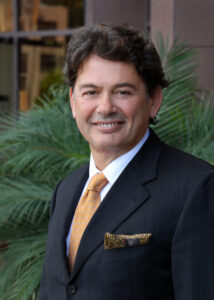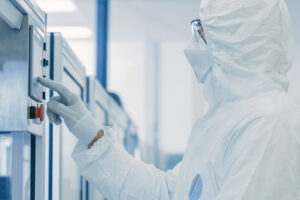
Shoreline Biosciences has nearly doubled its total capital by completing a $140-million financing that will help it further build its platform and pipeline, focused on developing natural killer (NK) and macrophage cellular immunotherapies derived from induced pluripotent stem cells (iPSCs).
The financing also gives Shoreline capital toward creating potent and persistent NK cell-specific Chimeric Antigen Receptors (CARs) as well as switchable CAR-NK cell engagers and macrophage-specific CARs to treat blood cancers, solid tumors, and other disorders.
Shoreline has developed iPSC-derived NK cells and macrophages that are optimized by applying gene editing to target specific genes with properties sought by the company. Shoreline says its “intelligently engineered” NK cells can target and kill tumors more effectively and efficiently.
“It is natural to think that we can take advantage of the biology of natural killer cells, and if we can make them more persistent, arm them with specific target missiles that we call chimeric antigen receptors and direct them towards the site of the tumor cell, it will have an effect,” Kleanthis G. Xanthopoulos, PhD, Shoreline’s chairman and CEO, told GEN Edge.
Shoreline reasons it can produce NK cells faster, less expensively, and with potential for re-dosing compared with CAR T cell therapies. Despite their effectiveness fighting blood tumors, CAR-T therapies have shown significant side effects, notably cytokine release syndrome and graft versus host disease. And while T cells require activation before they can be sicced on cancer cells, being part of the adaptive immune system, NK cells do not since they are within the innate immune system.
“We found out that you can engineer the cells to be a better athlete, metabolically better fitted. They can persist longer. They can withstand the tumor micro-environment, which is a hostile environment typically for any cell therapy approaches,” he added. “Armed with these additional properties, we’re hoping that we can have a huge impact on the tumor cells.”
In NK cells, for example, Shoreline has removed the cytokine-inducible SH2 (CIS) protein encoded by the CISH protein coding gene and known to block the interleukin (IL)-2 and IL15 signaling that is critically important for activating cell proliferation.
“If we can intelligently remove that CIS protein, we see an NK cell that responds better to cytokines and at much lower concentrations, is metabolically more active, is a metabolically better fitted cell. It kills better because it produces many more different cytokines and it also withstands the tumor micro-environment better,” Xanthopoulos explained. “That’s the whole idea of intelligent-designed allogeneic cells.”
Looking beyond cancer
Shoreline has chosen to focus on cancer given the huge unmet medical need and the innate ability of NK cells to fight tumors. Long-term, however, the company envisions fighting cancer as well as chronic and infectious diseases through cell therapies based on macrophages.
“We know that there are chronic diseases that eventually can be addressed with macrophage cell therapies that have the innate ability to repair damaged tissue, and you can think of a number of diseases down the road that potentially macrophages can have the ability to do that,” Xanthopoulos said.
“What stands between our goals and moving non-oncology clinical programs forward is the need to understand better the so-called immunodepletion and conditioning of these patients, which we’re doing in the oncology setting, but you can’t necessarily consider doing that for chronic disease,” he added. “We can address that in in the future but the immediate focus is on oncology.”
Could Shoreline someday create cell therapies that combine NKs and macrophages?
“The short answer is yes, they indeed can complement each other,” Xanthopoulos replied. “Down the road we can potentially consider combining those two, but obviously we need to study them in the clinic individually and understand how they behave before we take that step.”
Shoreline’s core cell therapy platform is already designed to produce a homogenous population of optimized, fully functional immune cells. By cloning a select master iPSC-derived NK cell with its new optimized genetic signature, the company said, it can amplify that superior NK cell to create an unlimited number of homogenous quantities of the living cell therapy. The cells are then cryopreserved and stored, ready to treat any number of patients within hours.
“The clonal expansion capabilities of pluripotent stem cells give us the ability to do all the engineering we want at the pluripotent stem cell level, then select the clones or the clone that has the phenotype and the genotype that we are interested in,” Xanthopoulos said.
“From that clone, we can engineer trillions of cells. The process is relatively straightforward. It’s a clonal expansion of the clone that we have identified, and it gives us the ability to then create from a single run currently up to 500 doses, and it the yield will certainly increase as we optimize and we move into what we call smart manufacturing, which we plan to bring online in a couple of years from now.”

$300M in capitalization
Shoreline said the financing, announced Tuesday, brings its total capitalization to more than $300 million. Roughly half of that capital consists of upfront cash that Shoreline received when it signed a pair of cell therapy collaborations in June with big-name partners Kite, a Gilead Company, and BeiGene—collaborations that could generate more than 10 times Shoreline’s current capitalization.
Kite is also partnering with oNKo-innate to develop NK cells. Numerous other companies have expanded into NK cell drug development; Artiva Biotherapeutics, for example, is building a pipeline of NK cell products that include antibody-dependent cellular cytotoxicity (ADCC) enhancers and targeted NK cells engineered to express proprietary CARs. Artiva, Catamaran Bio, Dragonfly Therapeutics, Fate Therapeutics, Kiadis, and Nkarta are among other companies focused on NK cell development.
“These transformative corporate partnerships with Kite and BeiGene have tripled the size of our aspirations and clinical trials,” and thus the number of treatment candidates in Shoreline’s pipeline, Xanthopoulos said. “As such, we are expanding our capabilities in manufacturing.” Shoreline is already building a “smart” manufacturing facility in San Diego designed to enable full automation. Xanthopoulos said the facility will enable the company to keep costs low. “We will announce in the near future some additional collaborations to secure additional manufacturing capabilities,” Xanthopoulos added.
Kite and Shoreline are partnering to develop novel allogeneic candidates for several blood cancers. The companies’ collaboration is initially focusing on CAR NK targets, with Kite having an option to expand the collaboration to include an iPSC CAR macrophage program for an undisclosed target.
“We already have constructs that we received from Kite. They’re now engineered in the backbone of our NK cells that have the CISH knockout. And we’re putting them together, and advancing with the aim to be in the clinic with the KITE collaborations programs in the next couple of years,” Xanthopoulos said.
Kite—which participated in Shoreline’s $43-million Series A round completed last April—selected Shoreline as its strategic partner for a strategic expansion into allogeneic iPSC therapies based around NK cells, in due to the expertise of the laboratory of Dan S. Kaufman, MD, PhD, a UCSD investigator and Shoreline co-founder, who serves as the company’s Chief Scientific Officer.
Last year, Kaufman and Xanthopoulos joined 30-year biotech veteran Steven Holtzman, the former CEO of Decibel Therapeutics, and William Sandborn, MD, in co-founding Shoreline to commercialize research and tech developed in the labs of Kaufman and Sandborn, who is Director of the Inflammatory Bowel Disease Center at UCSD and Shoreline’s Chief Medical Officer. Shoreline is also developing and commercializing additional technologies from Scripps Research’s Calibr division.
NK Cell Partnership
With BeiGene, Shoreline agreed to develop and commercialize NK-based cell therapeutics by combining its research and clinical development capabilities with Shoreline’s iPSC NK cell technology. BeiGene will retain worldwide development and commercialization rights for up to four targets—two solid tumors two blood tumors—with Shoreline holding an option to retain exclusive U.S. and Canadian rights for two of those four, as well as royalties.
BeiGene paid $45 million upfront to launch their collaboration, which could generate more than $1.3 billion for Shoreline in additional R&D funding, milestone payments, plus royalties. Shoreline is overseeing clinical manufacturing, while clinical development will be led by BeiGene globally.
“What we show in partnering with BeiGene is their amazing global clinical development and protein engineering capabilities as we plan to potentially combine our cells with antibodies, or so-called engagers that further enhance the activity of our NK cells,” Xanthopoulos said. “Those are core strategic capabilities—not just from the financial and validation perspective, but importantly from the clinical focus perspective—therefore amplifying Shoreline’s capabilities.”
BeiGene received an option to acquire an equity stake in a subsequent Shoreline financing—an option BeiGene exercised when it joined Kite as an investor in the $140-million financing. The round was led by Aly Bridge Group—whose founder, CEO and CIO Frank Yu joined Shoreline’s board in connection with the financing.
Yu stated that Ally Bridge Group, which focuses its investments on what it deems best-in-class cell therapy companies from oncology to autoimmune diseases, “expects Shoreline to be a new category leader.”
Other new investors in the $140-million round included Eventide Asset Management, Irving Investors, Kingdon, NS Investment, Piper Heartland Healthcare Capital, and Superstring. They were joined by previous investors including Boxer Capital, BVF Partners, Commodore Capital, Cormorant Asset Management, Janus Henderson Investors, Stork Capital, and Wedbush Healthcare Partners.
The latest financing will help Shoreline fund an ongoing expansion: The company plans to double its workforce, now close to 50 full-time equivalents, and anticipates moving in the second quarter of 2022 into a new 60,000-square-foot headquarters in San Diego.
Shoreline has mostly completed its executive suite with the appointment of Scott Forrest, PhD as Chief Business Officer; he was previously CFO of Autobahn Therapeutics. Further expansion will focus on R&D, clinical operations, and Chemistry, Manufacturing and Controls (CMC).





